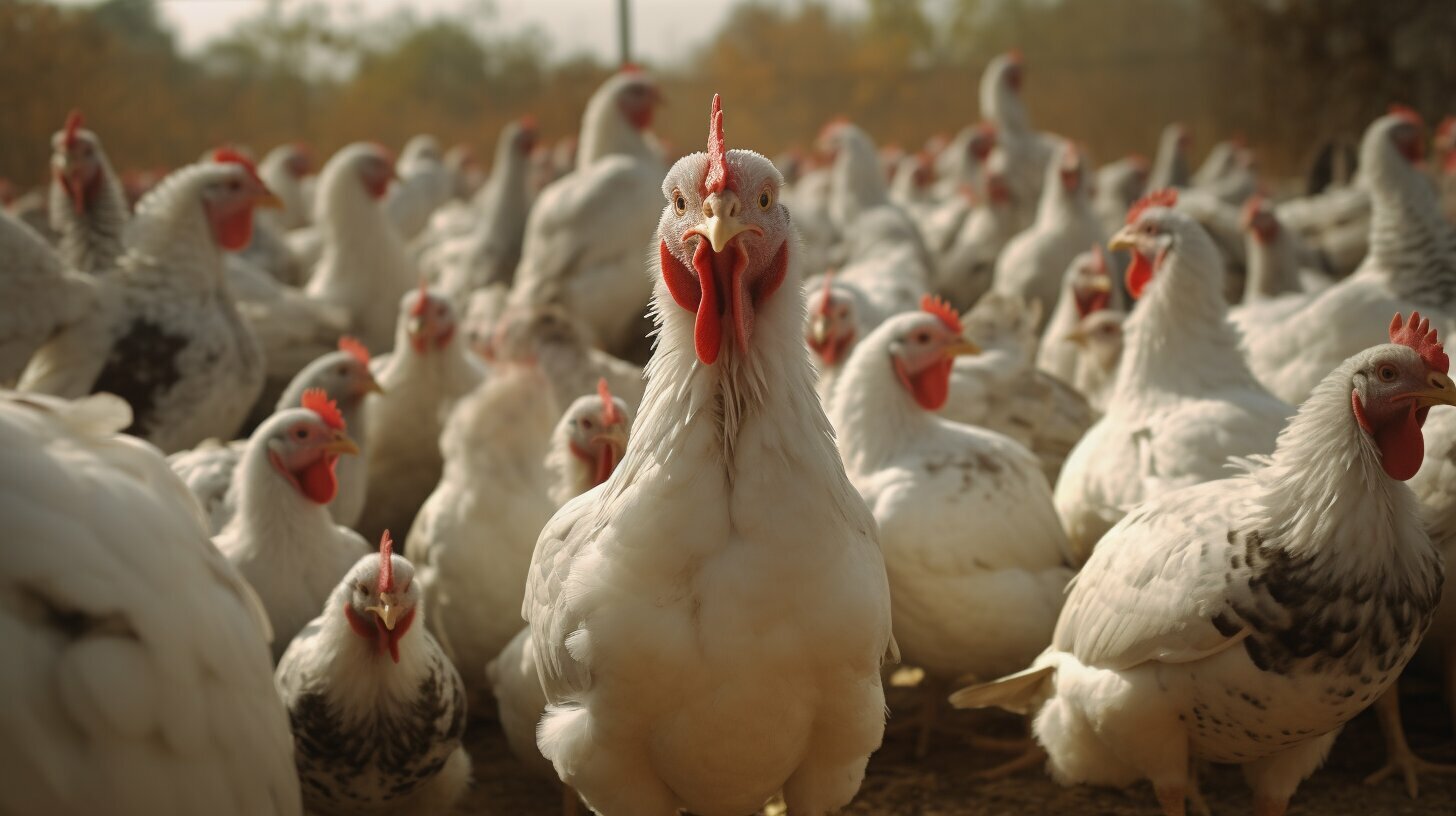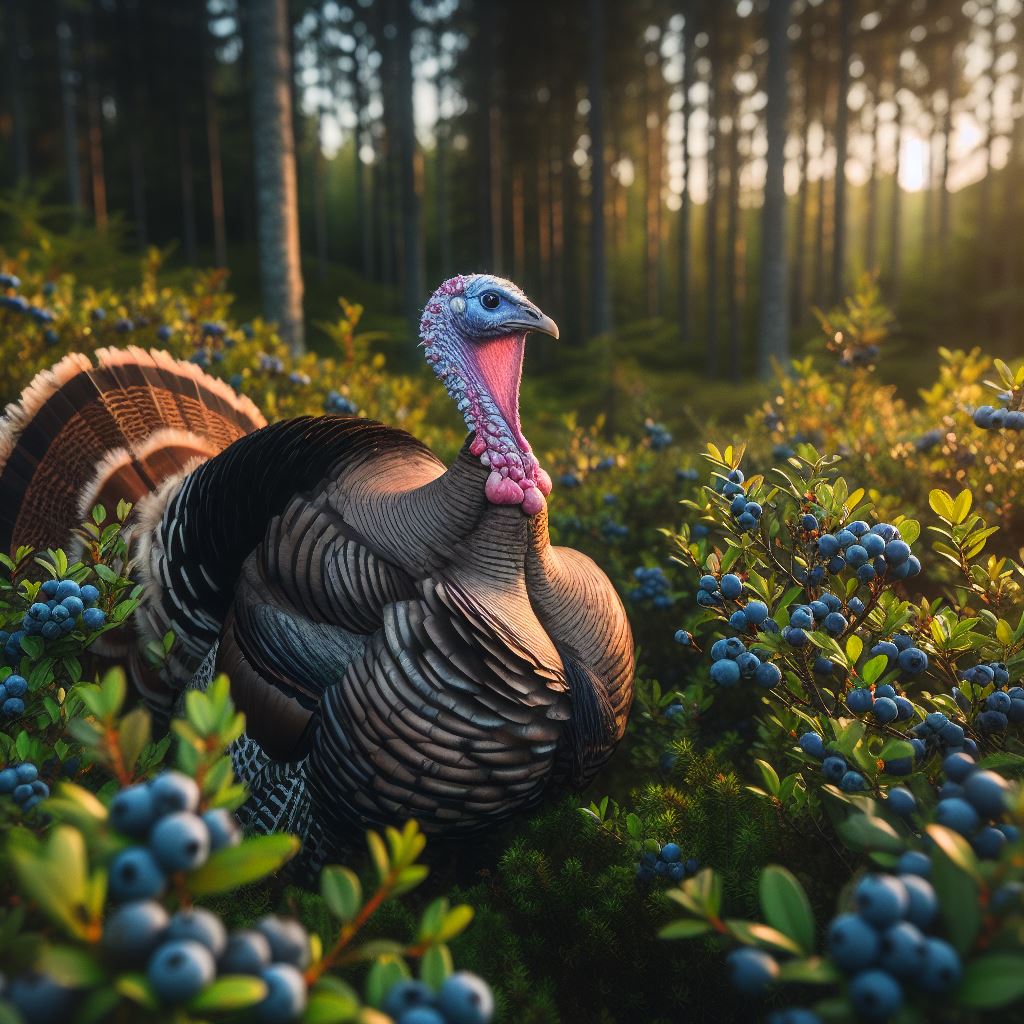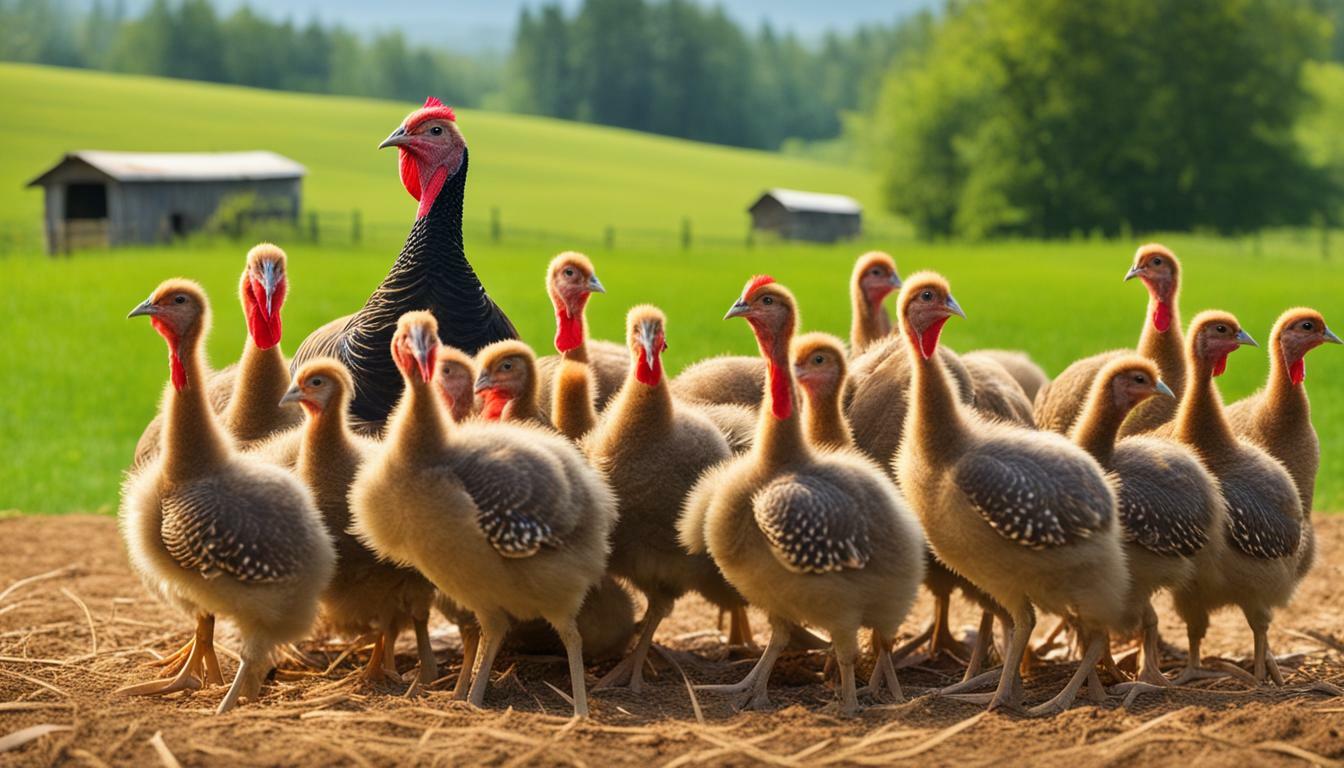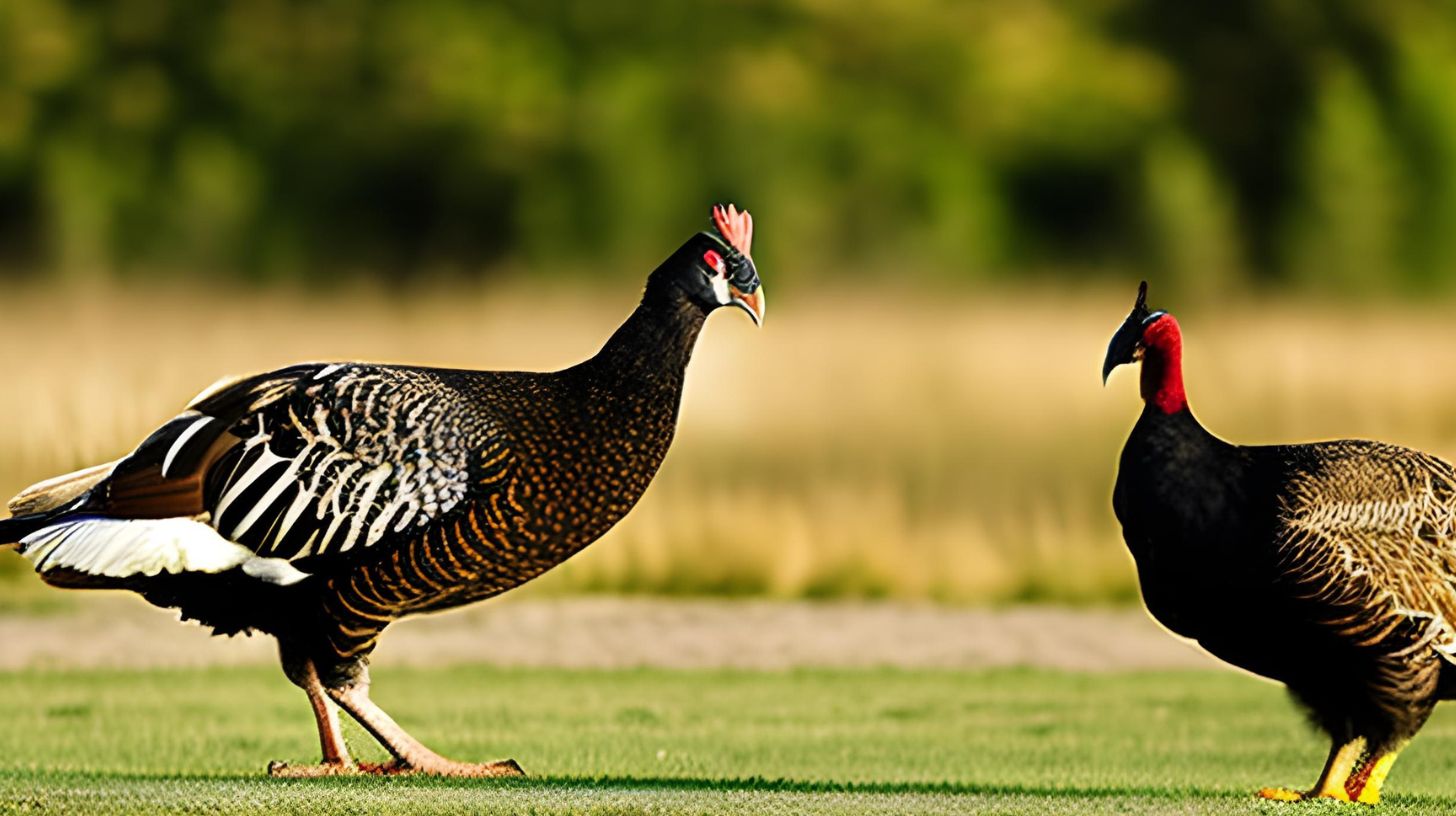Can Turkeys Eat Chicken Feed? Comparing Turkeys and Chickens

Table of content:
Many backyard poultry owners wonder if it’s okay to feed their turkeys the same feed they give their chickens. On the surface, this seems like a reasonable thing to do. However, there are some important differences between chickens and turkeys that mean their nutritional needs don’t completely overlap.
Can Baby Turkeys Eat Chicken Feed?
Baby poults (turkeys under 4 weeks old) have specific nutritional requirements. They need high levels of protein for proper growth and development. They also need a balanced amino acid profile as well as adequate vitamins and minerals.
Chicken feed is not formulated to meet the needs of rapidly growing poults. It poses a risk of nutrient deficiencies during this critical stage. For best results, poults should be started on a turkey-specific starter feed. Trying to raise poults on chicken feed could negatively impact their health and growth.
Differences Between Chickens and Turkeys
Chickens and turkeys belong to different biological families. Turkeys are larger, faster growing, and more active than chickens. Their behavior and physiology is quite distinct.
Turkeys tend to be aggressive and high-strung compared to the more docile nature of chickens. Their growth rates are rapid in order to reach market weights. Turkeys destined for meat production can weigh upwards of 40 pounds.
The nutritional demands of turkeys reflect these physiological differences. Their diet must support their muscle and skeletal growth as well as energetic lifestyle.
Nutritional Needs of Chickens vs Turkeys
The protein requirements of turkeys are higher than that of chickens. Turkeys need 28% protein or more in the starter phase, compared to 20% protein for chicks.
The amino acid balance is also different. Turkeys need higher levels of the amino acids lysine, methionine, cystine, threonine, arginine, valine, isoleucine, and tryptophan.
Vitamin and mineral needs vary as well. Turkeys require higher calcium for bone growth along with increased niacin, vitamin B6, folate, and zinc. Selenium is also essential for turkey health.
Their higher energy needs mean turkeys utilize more calories per pound of body weight compared to chickens. Their diet must deliver enough energy for activity and growth.
Typical Composition of Chicken Feeds
Chicken feed comes in two main types: starter/grower feed and layer feed.
Starter feeds are high protein, multi-ingredient mixes of grain and supplements. Common ingredients are corn, soybean meal, wheat, fish meal, and animal byproducts.
Layer feeds contain added calcium and minerals to support egg production. They have lower protein levels around 16-17%.
Broiler chicken feeds are high protein like starter feeds but optimized for fast growth of meat birds.
Can Turkeys Eat Chicken Layer Feed?
Chicken layer feed would be a poor choice for turkeys. It contains too much calcium and not enough protein for turkeys.
The calcium levels are set for a laying hen’s egg production, not a growing turkey. Excess calcium can cause skeletal issues and kidney problems in turkeys.
The lower protein would also not properly support muscle growth. Turkeys have higher protein needs for their development compared to laying hens.
Potential Issues with Feeding Chicken Feed to Turkeys
There are several potential downsides to feeding chicken feed to turkeys:
- Nutrient deficiencies – lack of optimal amino acids, vitamins and minerals
- Stunted growth and poor feathering
- Lower disease resistance and poor immunity
- Bone or leg problems from imbalance of calcium and phosphorus
- Reduced fertility and egg hatch rates in breeding turkeys
Overall, chickens and turkeys have evolved distinct nutritional requirements. Chicken feed does not meet the unique needs of turkeys for energy, protein, or other nutrients.
Considerations for Feeding Chicken Feed to Turkeys
In a pinch, an adult turkey can subsist on chicken feed for a short time. However it is not recommended as a sole long-term diet.
If necessary, chicken feed should be limited to younger turkeys whose needs are still similar to chickens. They may also need supplemental minerals and vitamins.
Monitor any turkeys eating chicken feed closely for signs of malnutrition, such as:
- Slow growth
- Lackluster, frayed feathers
- Weight loss
- Loose droppings
Provide high-protein treats like insects, seeds, and veggies to boost their nutrition. Also allow free-choice access to grass, bugs, and other natural forage to fill dietary gaps.
Conclusion
Turkeys have very different nutritional demands compared to chickens. Feeding chicken feed to turkeys can result in malnutrition over time.
While baby poults may tolerate chicken feed in small amounts, a turkey-specific starter feed is highly recommended. Adult turkeys should not eat layer feed, and require a customized high protein maintenance ration for optimal health.
Check feed tags and consult poultry nutrition guides to choose the right feed for your birds. Keep chickens and turkeys separate to prevent accidental consumption of the wrong diet. With proper nutrition tailored to their species, both chickens and turkeys will thrive.
Welcome. I’m Adreena Shanum, the proud owner of this website, and I am incredibly passionate about animals, especially poultry. I founded adreenapets.com as a labor of love, stemming from my desire to share my knowledge and experiences with poultry enthusiasts worldwide.




